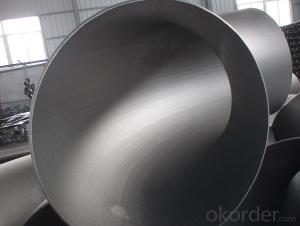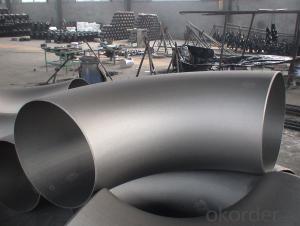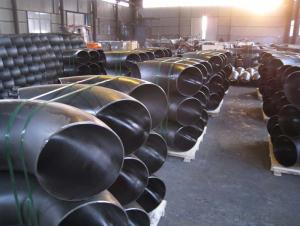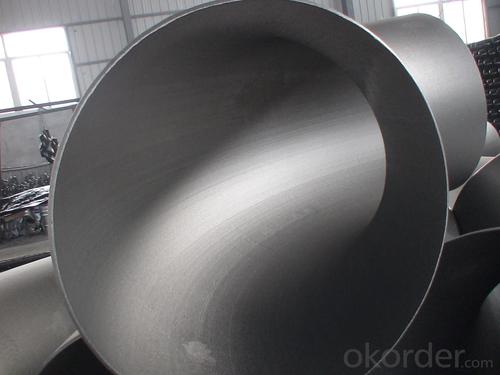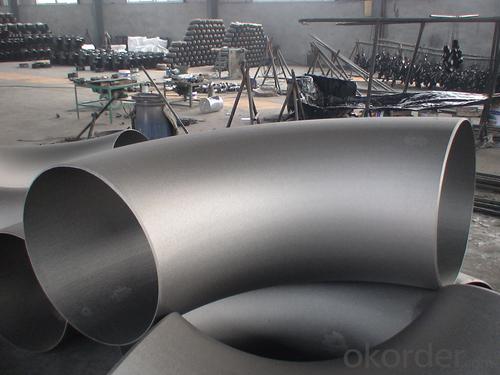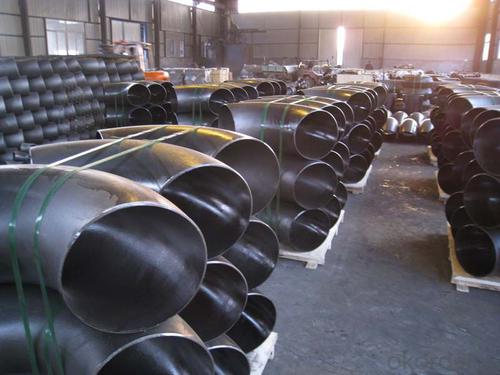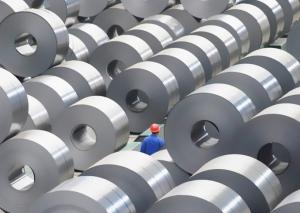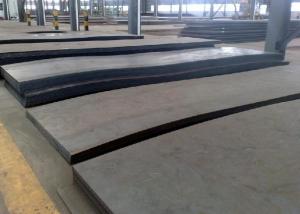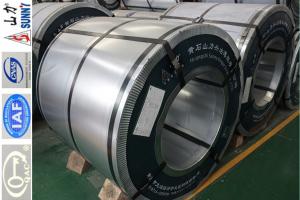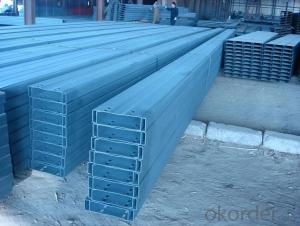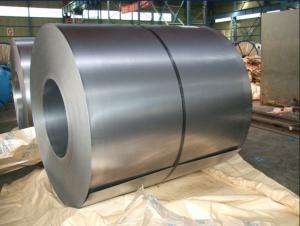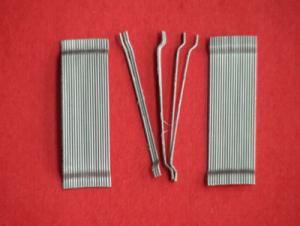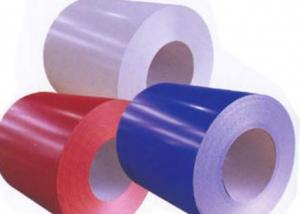Carbon steel pipe fittings TEE
- Loading Port:
- China Main Port
- Payment Terms:
- TT OR LC
- Min Order Qty:
- -
- Supply Capability:
- -
OKorder Service Pledge
OKorder Financial Service
You Might Also Like
Pipe fitting is the occupation of installing or repairing piping or tubing systems that convey liquid, gas, and occasionally solid materials. This work involves selecting and preparing pipe or tubing, joining it together by various means, and the location and repair of leaks.
Pipe fitting work is done in many different settings: HVAC, manufacturing, hydraulics, refineries, nuclear-poweredSupercarriers and Fast Attack Submarinescomputer chip fab plants, power plant construction and other steam systems. Pipe fitters (sometimes called simply "fitters") are represented in the USA and Canada by the United Association of Journeymen and Apprentices of the Plumbing and Pipe Fitting Industry of the United States and Canada.
Fitters work with a variety of pipe and tubing materials including several types of steel, copper, iron, aluminium, and plastic. Pipe fitting is not plumbing; the two are related but separate trades. Pipe fitters who specialize in fire prevention are called Sprinklerfitters, another related, but separate trade.
Materials, techniques, and usages vary from country to country as different nations have different standards to install pipe.
Elbow are an English alternative rock band consisting of Guy Garvey (vocals, guitar), Richard Jupp (drums, percussion), Craig Potter (keyboards, piano), Mark Potter (guitar, backing vocals), and Pete Turner (bass guitar, backing vocals). They have played together since 1990, adopting the Elbow band name in 1997, and have released six studio albums: Asleep in the Back (2001), Cast of Thousands (2003), Leaders of the Free World (2005), The Seldom Seen Kid (2008), Build a Rocket Boys! (2011), and The Take Off and Landing of Everything (2014). All of their studio albums, as well as B-sides compilation Dead in the Boot (2012), have placed in the top 15 of the British album chart and seven of their singles have placed in the top 40 of the British singles chart.
In 2008 Elbow won the Mercury Music Prize for their album The Seldom Seen Kid, and in 2009 they won the Brit Award for Best British Group In 2012 they released "First Steps", the BBC theme for the 2012 London Olympics
Specifications
Standard: ASTM A234 WPB, JIS, DIN, EN, GOST
Use for Oil, Gas, Subwatering act.
45/90/180 degree, LR/SR Elbow
ASTM A234 WPB ELBOW :
| ||||||||
| we are manufacturer for carbon steel pipe and fittings,like 45deg,90deg,180deg,L/R OR S/R,bend , | ||||||||
| equal or reducing tee, CON reducer, ECC reducer, pipe cap,flange. | ||||||||
| CON AND ECC REDUCER: CARBON STEEL,STAINLESS,STELL,ALLOY STEEL | ||||||||
| NOMINAL DIAMETER | BIG OD1 | SMALL OD2 | HEIGHT(MM) | |||||
| MM | SERIES A | SERIES B | SERIES A | SERIES B | 51-711 | |||
| 25*15--1500*1400 | 33.7-1524 | 32-1520 | 21.3-1420 | 18-1420 | ||||
| MATERIAL: A234WPB,A283,A105,A53,A106,API5L | ||||||||
| STANDARD: ASTM/ANSI,DIN,ISO,GB,JIS,BS ,GOST | ||||||||
| OTHERS: | ||||||||
| 1. Special design available according to requirement | ||||||||
| 2. All the production process are made under the ISO 9001:2000 strictly. | ||||||||
- Q: What are the factors to consider when choosing the right steel product for a specific application?
- When choosing the right steel product for a specific application, several factors need to be considered. These factors include the required strength and durability, corrosion resistance, cost-effectiveness, ease of fabrication and installation, availability, and environmental impact. Additionally, factors such as weight, aesthetics, and compatibility with other materials or systems may also play a role in the decision-making process. Overall, understanding the specific requirements of the application and evaluating the various characteristics of different steel products is crucial in making an informed choice.
- Q: How are steel products used in the construction of airports and terminals?
- Steel products are used extensively in the construction of airports and terminals due to their durability, strength, and versatility. Steel is used for structural components such as columns, beams, and trusses, providing a strong framework for the airport or terminal building. Steel is also used for roofing and cladding, ensuring weatherproof and long-lasting exteriors. Additionally, steel is utilized in the construction of bridges, walkways, and canopies, providing a safe and functional infrastructure for passengers and staff. Overall, steel products play a crucial role in the construction of airports and terminals by providing reliable and efficient solutions for various architectural and structural requirements.
- Q: How is steel used in the production of tools and machinery?
- Steel is widely used in the production of tools and machinery due to its high strength and durability. It is commonly employed to manufacture various components, such as blades, gears, shafts, and frames, that require resistance to wear, deformation, and heavy loads. The hardness and toughness of steel make it ideal for cutting, drilling, and shaping materials. Additionally, its ability to be easily machined and welded allows for customization and assembly of complex machinery. Overall, steel's properties make it an essential material in the construction of tools and machinery, ensuring their reliability and efficiency.
- Q: How is steel used in the manufacturing of household appliances?
- Steel is commonly used in the manufacturing of household appliances due to its durability, strength, and resistance to corrosion. It is used to construct the framework and outer casing of appliances such as refrigerators, ovens, washing machines, and dishwashers. Additionally, steel is also used in the production of various internal components and mechanisms, ensuring the overall reliability and longevity of household appliances.
- Q: How are steel products used in the construction of libraries and educational centers?
- Steel products are commonly used in the construction of libraries and educational centers for various purposes. Steel beams and columns are used to provide structural support, ensuring the durability and stability of the building. Steel frames are also used for walls and roofs, allowing for flexible and efficient design options. Additionally, steel is used for doors, windows, and other architectural elements, providing security and aesthetic appeal. Overall, steel products play a crucial role in constructing safe, functional, and aesthetically pleasing libraries and educational centers.
- Q: What are the factors that affect the price of steel products?
- There are several factors that affect the price of steel products. These include the cost of raw materials, such as iron ore and coal, as well as energy prices and transportation costs. Other factors include supply and demand dynamics, global economic conditions, trade policies and tariffs, and the overall level of competition in the steel industry. Additionally, currency exchange rates and government regulations can also have an impact on steel prices.
- Q: How is steel used in the railway industry?
- Steel is used extensively in the railway industry for various purposes. It is used to manufacture rails, which form the tracks on which trains run. Steel is also used to construct train cars, locomotives, and various components such as wheels, axles, and couplers. Additionally, steel is utilized in the construction of bridges and tunnels, ensuring the safety and stability of railway infrastructure.
- Q: What are the applications and uses of steel products in various industries?
- Steel products have a wide range of applications and uses in various industries. In the construction industry, steel is commonly used for structural purposes, such as beams, columns, and framework, due to its high strength and durability. Steel is also extensively used in the automotive industry for the production of car bodies, chassis, and engine components, as it provides excellent crash resistance and weight reduction. Furthermore, steel is utilized in the manufacturing of household appliances, electrical equipment, and machinery, thanks to its corrosion resistance and heat conductivity. Additionally, steel is crucial in the energy sector for the construction of power plants, pipelines, and oil rigs. In summary, steel products play a vital role in multiple industries, providing strength, reliability, and versatility.
- Q: What are the different types of steel fasteners and connectors available?
- There are several types of steel fasteners and connectors available, including screws, bolts, nuts, washers, rivets, and nails. Each type serves a specific purpose and is designed to provide a secure and reliable connection in various applications.
- Q: How are steel sheets used in the automotive industry?
- Steel sheets are used in the automotive industry for various purposes such as body panels, structural components, and reinforcement. They provide strength, durability, and crash resistance to vehicles, ensuring safety and longevity.
Send your message to us
Carbon steel pipe fittings TEE
- Loading Port:
- China Main Port
- Payment Terms:
- TT OR LC
- Min Order Qty:
- -
- Supply Capability:
- -
OKorder Service Pledge
OKorder Financial Service
Similar products
Hot products
Hot Searches
Related keywords
